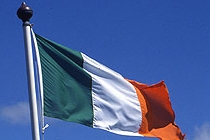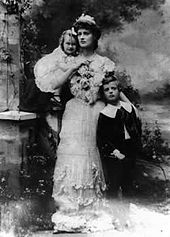First General Election after the First World War and declaration of Irish independence
Immediately after the Armistice with Germany which ended the First World War, a General Election was announced in the so-called United Kingdom. On 14 November it was announced that Parliament would dissolve on 25 November, with elections on 14 December. The Irish General Election of 1918 was that part of the 1918 general election which took place in Ireland. In 1918 the whole of Ireland was a part of the United Kingdom of Great Britain and Ireland, and was represented in the British Parliament by 105 MPs. It is was significant moment in modern Irish history. Since the 1880's the moderate nationalist Irish Parliamentary Party (IPP), had dominated the Irish political landscape. That was to all change in 1918.
The result in Ireland was a landslide victory for the radical Sinn Féin party whose candidates won 73 seats out of 105. This included Countess Markievicz who was the first woman elected to the British House of Commons. She had taken part in the 1916 Easter Rising and had been sentenced to death, telling the Court at the time of her sentence: "I went out to fight for Ireland's freedom and it does not matter what happens to me. I did what I thought was right and I stand by it." The sentence was later commuted to life in prison. In the aftermath of the elections, Sinn Féin's elected members refused to attend the British Parliament, instead they formed a parliament in Dublin, the First Dáil (Irish for "Assembly"), which declared Irish independence as a republic. The Dáil reaffirmed the 1916 Proclamation with the Irish Declaration of Independence. The British refusal to accept the democratic vote of the Irish people was to lead to the Irish War of Independence between 1919 - 1921. A conflict during which the British government faced severe criticism at home and abroad for the brutal actions of British forces in Ireland.







